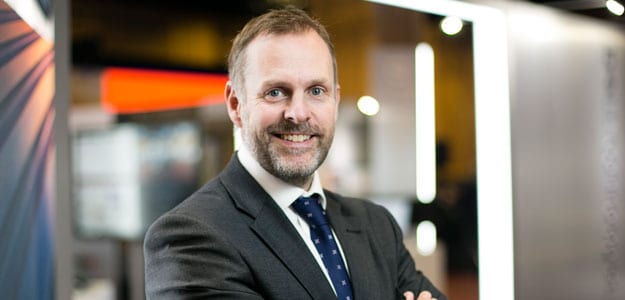Mark Hopkins, General Manager, Dell Technologies Ireland
It is imperative that Ireland ensures its talent pool continues to attract the top global companies and strengthens the indigenous economy, writes Mark Hopkins, General Manager, Dell Technologies Ireland.
Ireland’s well-educated workforce has been critical to its success in attracting foreign direct investment from some of the world’s leading companies. Currently, over 53% of 30-34-year olds hold a third level degree, compared to the EU average of 40%.
But with over 1.1m citizens currently in the education system it is imperative that Ireland ensures its talent pool continues to attract the top global companies and strengthens the indigenous economy.
According to research by the Institute for the Future undertaken in advance of the Dell Technologies Forum Dublin, the future workplace will be a very different one as all industries digitally transform. As with all technological innovation, the pace of transformation is always accelerating so the workplace is constantly evolving.
In our world of 2030, 86% of business leaders plan to use emerging technologies to improve workforce productivity. Incumbent workers will find the next generation of workers will have ingrained digital skills which will drive further innovation and collaboration.
Therefore, in order to future proof Ireland’s economy we must ensure our workforce maintains its reputation as highly skilled. To do this, our education system must evolve to provide the right skills for the future workplace.
Our education system needs to be reimagined
There is a need to modernise the curriculum, so students are learning the right skills – collaboration, critical thinking, problem solving – in a manner that is transferable to the workplace. The development of the new National Digital Strategy offers a unique opportunity to initiate this process of change. If we change how we use technology to teach we can empower students to participate in the digital world of the future.
There are four important areas where policymakers could derive particular benefit from emerging technologies.
Artificial intelligence
Artificial intelligence can facilitate the development of individual learning plans. Learning is an individual journey; we all thrive at certain things and find others more challenging so using artificial intelligence to create tailored learning plans allows learners and teachers use their time more efficiently.
Mobile technology
Mobile technologies can foster and promote collaborative learning. Students will be able to work together outside the classroom, with students from across the globe, trying to solve real problems. This will allow them to use time with their teachers more effectively and prepare them for the workplace.
Virtual reality
Virtual reality can also bring educational topics to life and keep students engaged. Rather than always reading, virtual reality could allow students to take part in a major historical event or take part in a scientific experiment without leaving their classroom.
Digital skills
Today, Ireland is ranked 6th in the EU’s Digital Economy and Society Index, but 23rd based on the number of people with basic digital skills. To maintain our competitive global position and improve this ranking, we must foster digital skills across all subject areas in schools.
Knowledge is no longer a differentiator in the workplace. The digital age values creative problem solving and the ability to make connections. Policymakers, educationalists and industry must work together to digitally transform education and ensure that upskilling and training become core elements of a person’s lifelong learning journey so they can be an integral part of the future workforce.



